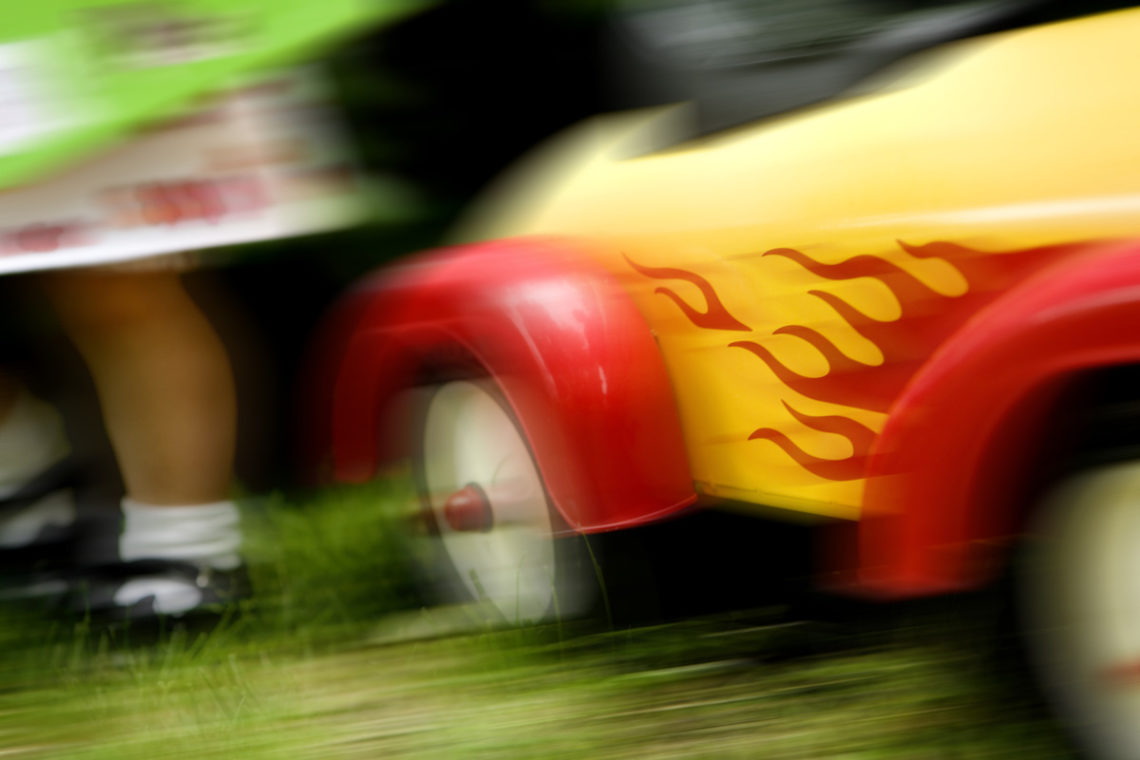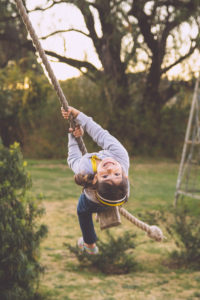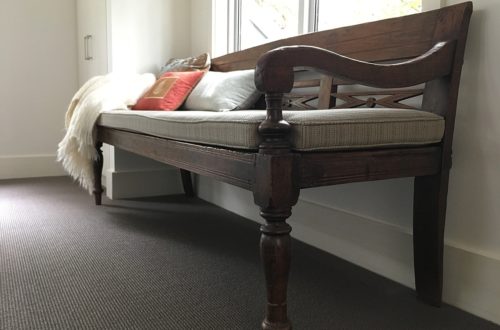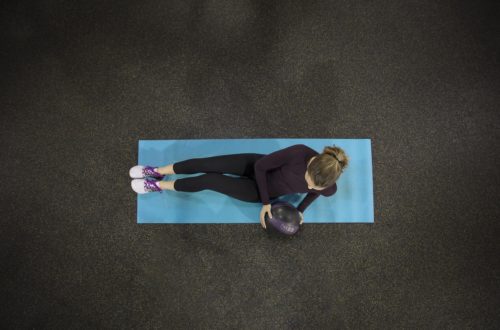
Nostalgia for Saturdays
We couldn’t wait to try it out.
Dad had been working on it for several weekends, using precious Saturday afternoons, and off-cuts of timber and particleboard from his shed to construct a one-of-a-kind go-kart.
It wasn’t the first thing he’d made for us and it wouldn’t be the last. But the tantalising prospect of speeding along the neighbourhood footpaths in this machine kept my sister, my brother and me enthralled as we watched it come together. We were so keen for a test drive.
Saturday chores
Back then in our family Saturday mornings were reserved for chores. Dad mowed the lawns, tended the veggie patch, tuned the engine on the Holden station wagon and fixed anything that needed fixing. He often kept the afternoons for special projects. In the evenings, he often went to his study to go over his sermon one last time before church the next day.
Mum worked part-time as a school music teacher and taught piano at home. So on Saturday mornings she did the whole week’s wash in the Hoover twin-tub washing machine and hung everything out to dry on the Hills hoist in the backyard.
It was a labour-intensive process, but it sure beat stirring sheets in a boiling copper and squeezing them through a hand-operated wringer like she once did. Then she would cook a roast and bake something sweet as well.
Saturdays in our family were busy days. And once we were old enough, my sister and I had to help Mum clean the house, a duty I dreaded and detested. I resented the intrusion of housework into my child-life so passionately that even now I will do anything to avoid doing chores on Saturday morning. Sad, but true!
Saturday project
But there was still a go-kart to look forward to! Dad built it for utility, endurance and strength, the same way he made everything—properly. It had a rudimentary chassis, a driver’s seat and a length of sisal rope anchored to each end of the swivelling front axle.
But this time, it seems our impatience got the better of Dad. The final Saturday had come, the afternoon was nearly over and a set of wheels was the only thing missing.
Now, it was the early 1970s and our town didn’t have a neighbourhood hardware store with a ready supply of wheels for homemade go-karts. Even if it had, the store wouldn’t have been open. Everything closed at lunchtime back then.
So Dad broke his rule (for us) and quickly fashioned a makeshift set of wheels from particleboard using his handy hole saw. Then he attached them to each axle with some heavy-duty screws. They would have to do.
Saturday fun
After some quick negotiations between the three of us, my sister—the eldest—got to ride the go-kart first. Happily for us, the concrete footpaths in our part of town were relatively new and provided the perfect test drive conditions.
However, they were also very flat. So my little brother and I provided the horsepower. Pushing as hard and as fast as we could, the first run was an exhilarating success.
As the second in the family, my turn came next. And I can still remember the rapid ca-clunk ca-clunk as the wheels crossed the edge of each segment of the concrete path. It increased the heady sensation of speed.
My brother’s turn came next and as we pushed him he called out, “Faster, faster!” Some things never change.
I don’t remember how many more runs we had. But as the light began to fade we noticed that the friction of the wheels rotating on the metal screws was blackening the wood. ‘Oh well’, we shrugged. We knew Mum would soon call us to come inside, so my sister pushed my brother along the path for the final run of the day.
As I stood and watched them in the sunset’s glow, tiny plumes of black smoke appeared at the end of each axle and within seconds all four wheels either flew off or fell apart. We’d given new meaning to the phrase ‘hot wheels’. It was one of the funniest things I’d ever seen and we all roared with laughter.
After we’d inspected the wheel fragments and laughed some more, we rescued the stranded go-kart and ran inside to tell Dad and Mum all about it. That day was added to our family’s collection of ‘remember when’ stories which seemed to get funnier with each re-telling.
The go-kart did ride again. Dad found some purpose-made wheels that served us very well and for much longer.
But later, when we moved to the Adelaide hills those replacement wheels raised a different dilemma—how to stop. When speeding down our steeply sloping driveway one day, without brakes, my brother and the go-kart parted company in spectacular fashion. And so the trusty machine was retired from service.
I don’t know what happened to it in the end. But I suspect our ‘waste not, want not’ father dismantled it and saved any bits that might still be useful. Anyway, by then my sister and I and our teenaged brains had lost interest.
Childhood freedom

When I think about the free-range childhood we enjoyed and some of the crazy things we used to do, I’m so grateful I grew up when and where I did. I’m grateful too for the independence our parents granted us. They had an astounding confidence in our ability to navigate the world by ourselves.
It’s true they taught us to work hard and not shirk. But we also learned from our freedom.
We climbed trees and fences, played in the dirt and the sandpit, teetered on bikes, stilts and roller skates, defied gravity on monkey bars, swings, roundabouts and seesaws, roamed the streets and the bush. We fell off, fell down, lost skin, lost teeth, pretended, skipped, chased, hid, ran and dared.
Somehow we survived cars without seat belts, wayward firecrackers, concrete playgrounds, absent safety helmets, frequent sunburn, accidents, bumps, scrapes and bruises. But because our parents gave us permission, we learned to test our limits, experiment, explore and fail. How privileged we were.
It’s been fun to revisit my childhood, beneficial even. It’s reminded me to thank God for his great goodness and kindness, to thank him for my family.
I could describe those long-ago days as idyllic, because in some ways perhaps they were. But with decades standing between me back then and me now, I feel no nostalgia for my childhood Saturdays. Nor do I wish for those days to return.
Nostalgia & innocence
Life was certainly slower and simpler back then. And my siblings and I enjoyed a freedom that today’s kids do not.
And yet there was nothing innocent about that era.
Nothing innocent about a world waging white-hot Cold War, with jostling superpowers threatening to unleash nuclear catastrophe on us all. Nothing innocent about a world of cruel secrets, where the corrupt and powerful did unspeakable things to the weak and defenceless, and colluded to cover up their crimes.
I don’t wish for those days to return, because they are still here. They never ended. The wars and wickedness wear different costumes now, but underneath they are the same. Underneath we’re the same too.
Nostalgia is a longing we all experience at some point in life. But while it’s easy to recognise, it’s hard to explain or describe it. I guess that’s why childhood stories are so powerful, because they take us back effortlessly and remind us of things long ago.
Longing for home
Like many words in English, nostalgia has come to us through Latin, from the Greek, in this case, through nostos. And nostos means ‘a return to home’.
It’s an odd little fact that I find strangely comforting. It reminds me that as a Christian it’s right not to long for the old days—for this world is not my home. My home is elsewhere. I’m only a sojourner here.
So instead of looking back with rosy spectacles, I press forward and lean towards the future. Instead of wishing for what has been, I long for all that is promised to those who trust in Jesus.
Most of all, I look forward to the Father’s promised welcome that awaits our return home to heaven—to him. A welcome for every prodigal child.
But CS Lewis says it far better than me:
It is written that we shall “stand before” Him, shall appear, shall be inspected. The promise of glory is the promise, almost incredible and only possible by the work of Christ, that some of us, that any of us who really chooses, shall actually survive that examination, shall find approval, shall please God. To please God … to be a real ingredient in the divine happiness … to be loved by God, not merely pitied, but delighted in as an artist delights in his work or a father in a son—it seems impossible, a weight or burden of glory which our thoughts can hardly sustain. But so it is.
From: CS Lewis, The Weight of Glory, a sermon preached in Oxford on 8 June 1941.
Featured image: Photo by Keoni K | Lightstock.com




